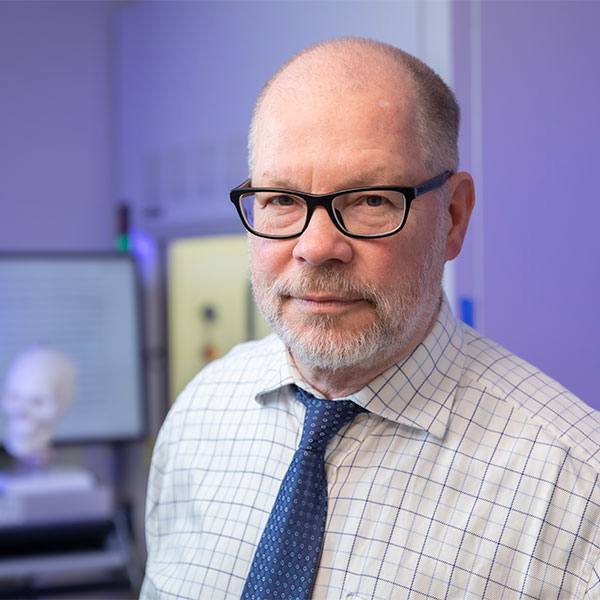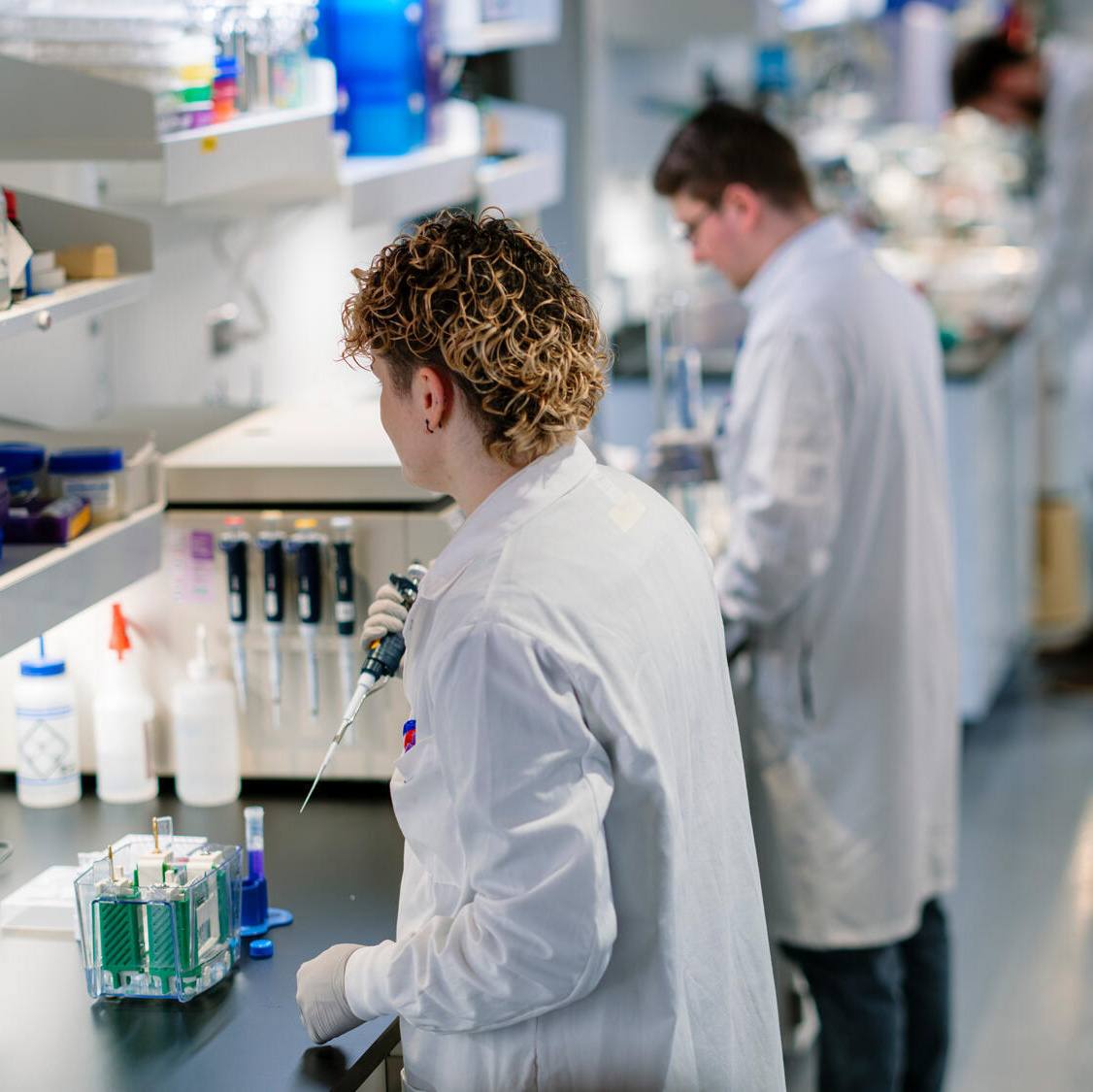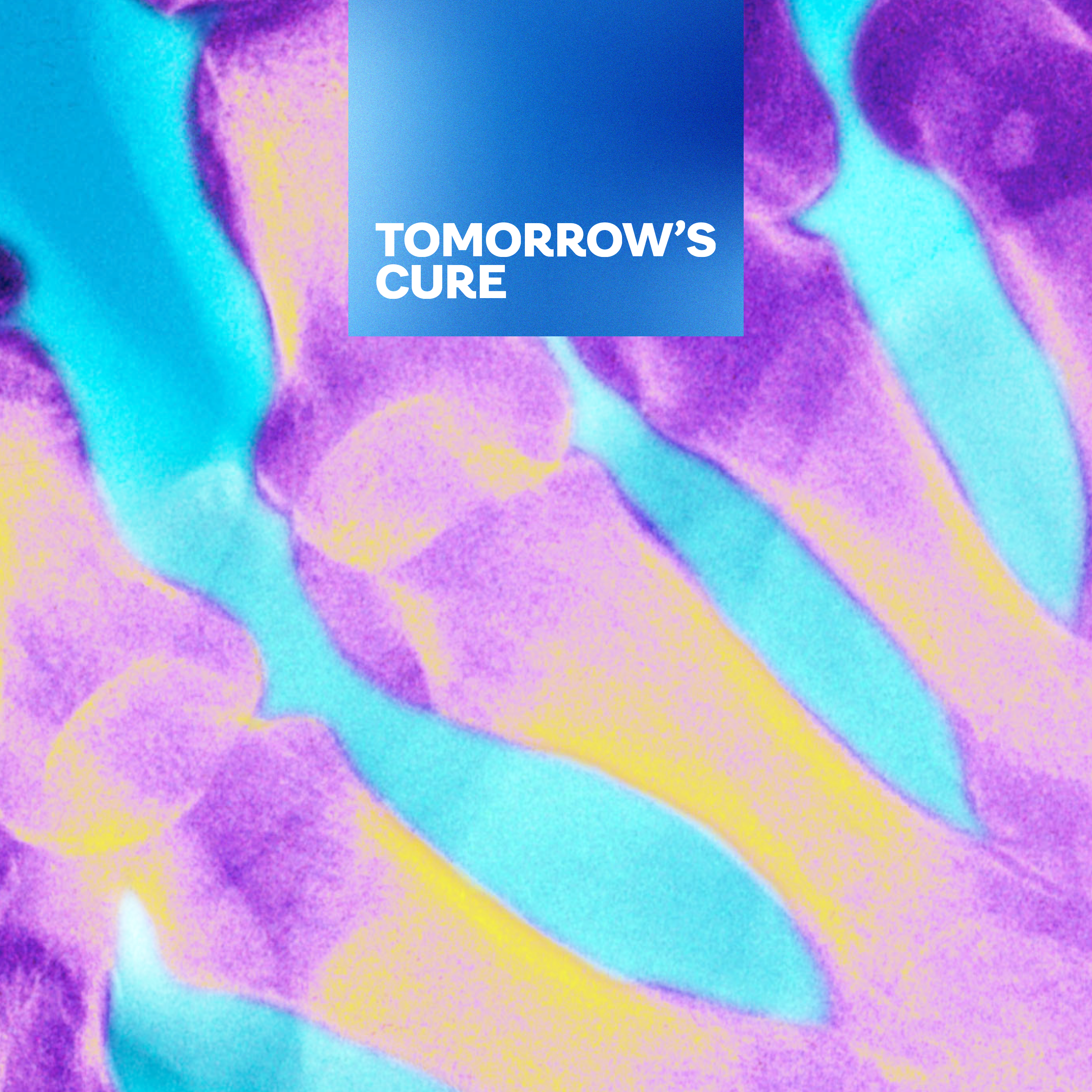-
Research
AI enhances MRI images to identify molecular markers of brain cancer

Five years ago Bradley Erickson, M.D., Ph.D. never would have imagined that an MRI would be able to identify the molecular characteristics of brain cancer. But because of the rapid advances in artificial intelligence (AI), that scenario isn’t science fiction. It’s an exciting medical reality for Dr. Erickson, a radiologist on Mayo Clinic’s campus in Rochester, Minnesota and his colleagues. With support from the Mayo Clinic Center for Individualized Medicine Imaging Biomarker Discovery Program, the team conducted a study in which AI tools rapidly scanned MRI images and successfully identified molecular markers for patients with glioma, a type of brain cancer, with more than 90% accuracy.
According to Dr. Erickson, this technology introduces a new type of precision medicine based on imaging.
“As these tools are refined, I can imagine a work flow where we input an image into a computer, which generates molecular markers of a patient’s cancer — things we previously thought required taking tumor samples for pathology analysis,” says Dr. Erickson, “Based on those markers, we can select the best targeted agent for a patient. We may also be able to monitor treatment response with this same process.”
Here’s a closer look at how Dr. Erickson and his team are using AI to enhance the interpretation of images of brain cancer and other diseases.
Deep learning tool plays key role in patient care
In the study, investigators analyzed images from The Cancer Imaging Archive, a National Cancer Institute initiative that includes images submitted from multiple centers, including Mayo Clinic. Researchers analyzed MRI images from 500 patients with glioma with an AI tool known as deep learning.
Using images from 400 of the patients, researchers first “trained” the deep learning tool to recognize four molecular markers of glioma. These biomarkers, which were established by the World Health Organization, can help predict how a tumor will behave and identify the most effective targeted therapies.
Researchers then imputed images for the remaining 100 patients. The deep learning tool successfully predicted molecular markers, which had previously been identified through genetic testing, for the majority of patients.
“While these AI tools won’t replace genomic or pathology testing, they will provide important information about a patient’s disease that can be used along with other measures to develop an individualized treatment plan,” says Dr. Erickson.

The next step is to move this technology into patient care to analyze MRI images for glioma patients.
“If our findings agree with genetic testing and pathology results, we can be more confident that we have correctly classified a patient’s disease and can move forward with an individualized plan for care,” says Dr. Erickson. “If imaging results differ from genetic and pathology findings, this may signal the need to watch a patient more closely when selecting a targeted therapy and monitoring treatment response.”
The deep learning tool will also play a key role in identifying a patient’s disease type when a tumor sample cannot be obtained.
“In cases where the tumor size or location makes it difficult to obtain a tissue sample, our computer models can still offer a characterization of a patient’s disease,” says Dr. Erickson.
Dr. Erickson notes that similar computer models are already being used to enhance imaging in other areas of Mayo Clinic patient care.
For example, radiologists are able to more accurately and rapidly measure the volume of kidney cysts for patients with polycystic kidney disease. This is a crucial measurement when evaluating treatment options and response to therapy.
According to Kiaran McGee, Ph.D., director of the Imaging Biomarker Discovery Program, “Dr. Erickson’s work is a great example of how AI is impacting clinical medical decision making processes in a real and tangible way.”
AI serves as springboard for discovery
“It’s an exciting time — AI is revolutionizing the way we are able to analyze images, with a growing number of examples where biological traits are revealed that it would have taken a human months to identify or that had never been seen,” Dr. Erickson explains.
He points to the potential that the deep learning tool will have as a springboard for discovery.
“We used to think these computer models were black boxes. We weren’t sure what the computer was seeing. Now we have a better understanding of the technology and can apply it to make discoveries about underlying features of disease that were previously unknown. This may unlock new ways to prevent, diagnose, treat and even cure disease,” adds Dr. Erickson.
Learn more
Read more stories about advances in individualized medicine.
Register to get weekly updates from the Mayo Clinic Center for Individualized Medicine blog.
Join the conversation
For more information on the Mayo Clinic Center for Individualized Medicine, visit Facebook, LinkedIn or Twitter at @MayoClinicCIM







